Panellists with a local perspective discussed opportunities presented by Hong Kong commercial hubs during Tuesday’s Mingtiandi Forum in Kowloon.
At the event sponsored by Yardi, attendees heard from Sherman Hung, managing director and head of large corporate in the institutional banking group at DBS Hong Kong; Thomas Lam, general manager of asset and portfolio management at New World Development; and Chelsea Perino, managing director of global marketing and communications at The Executive Centre.
The trio fielded questions from moderator Jeremy Ong, a partner at Baker McKenzie, about which business districts are offering the best opportunities in 2023 and beyond. Ong led by asking about the decentralisation trend in corporate offices that emerged in recent years, noting that Baker Mac itself relocated its entire staff from CK Asset’s Hutchison House in Central to Swire’s Taikoo Place in Quarry Bay.
“After 2019-20, we had the social movements, we had COVID, we had the good infrastructure and the central government talking about the GBA (Greater Bay Area) concept,” Lam said. “What we can see is that for many tenants who look for GBA opportunities, or believe in the GBA concept, they put their eyes on Kowloon West. So this is a trend of moving from the Central CBD to Island East, and also from the CBD to Kowloon East and Kowloon West.”
Complementing CBD
Lam joined the New World team after more than a decade at Knight Frank, where he led valuation and consultancy for Greater China. Speaking for himself, he expressed doubt that areas like Cheung Sha Wan, where New World is developing a commercial hub, could replace Hong Kong’s existing CBD.

Jeremy Ong, Sherman Hung and Thomas Lam on stage
“We still need the Central CBD,” Lam said, but new infrastructure like the Hong Kong-Zhuhai-Macau Bridge has persuaded tenants that the GBA concept can foster a complementary footprint in the territory’s farther-out areas.
A veteran of Morgan Stanley and Citibank, Hung first joined DBS Hong Kong in 2014 and rejoined in 2023 after a four-year stretch leading corporate finance at Kidsland International Holdings. Like many financial institutions, DBS has developed a policy around working remotely and skipping the physical office for at least part of the week.
“We allow people to work two days out of five days at home,” Hung said. “So effectively that’s reduced usage by 40 percent.” Even so, the Singapore-based bank has found that more and more Hong Kong staff prefer to come back to the office since the system was launched.
Flexible Space’s Role
That model of flexibility in office options is old hat for Perino, who has helped establish benchmarks for workspace experience and corporate-culture facilitation at The Executive Centre.
“We’re in the business of choice,” Perino said. “So, this idea of empowering people to understand how they work best, and as employers providing the right kinds of spaces for people to be the most productive is really that sort of happy medium, that’s where we want to be.”
Perino also gave her two cents on the rivalry between Asia’s competing financial centres and the push-pull effect on office worker mobility.
“Everybody who moved to Singapore wants to move back to Hong Kong, let’s be honest,” she quipped.



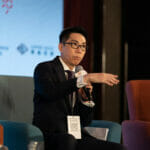
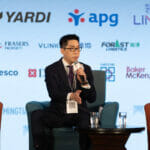

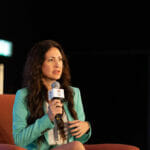
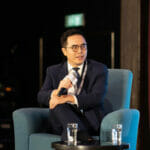
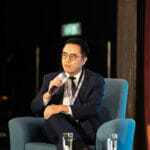



Leave a Reply